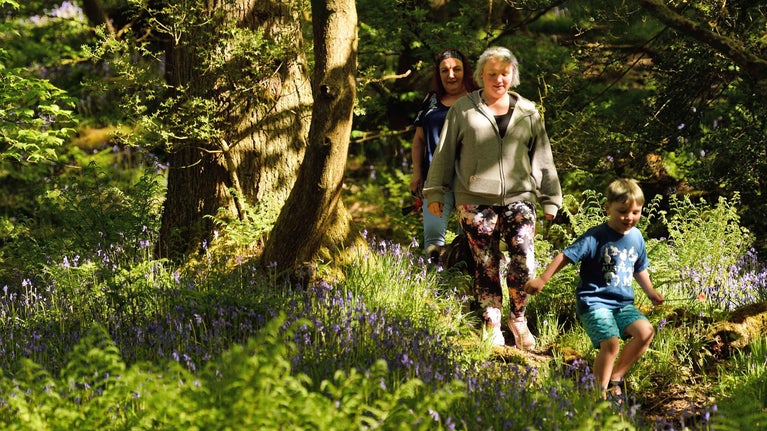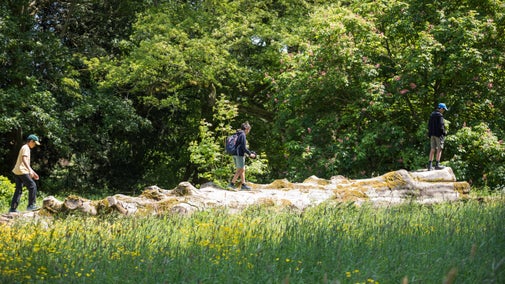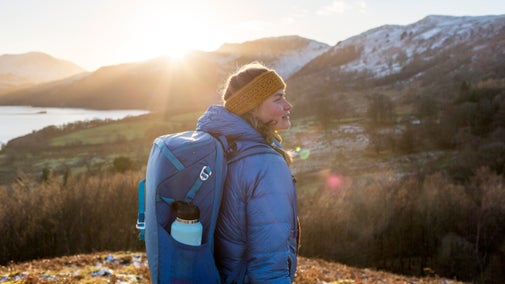
Discover more at Cadsonbury
Find out when Cadsonbury is open, how to get here, the things to see and do and more.

Visit the remarkable landscape of Cadsonbury, where you can immerse yourself in semi-natural woodland which offers both beautiful river walks or discover dramatic views from an Iron Age hillfort.
The woods at Cadsonbury are a great place to visit at any time in any season. In the sunshine the woodland paths along the River Lynher offer cooling shade. At certain times of the year, the ground beneath is awash with wild flowers amongst the veteran trees.
Carved out from a natural hill, this single ditched Iron Age hillfort, which Is a scheduled ancient monument, was created between the 5th and 3rd centuries BC. It probably served as a beacon site as well as a protective dwelling.
Trek up the steep hill to the fort for views across the valley on a clear day and to see wildflowers including dog violets and bluebells in spring.

Cadsonbury offers an abundance of flora and fauna for walkers to enjoy throughout the year.
Look out for otter, salmon, and birds including dippers and kingfishers which can be spotted along the river. Butterflies and other invertebrates can be seen here. See if you can spot wall and grayling butterflies as well as the predator hornet robberfly. Cadsonbury is also home to many hazel dormice.
Look out for dark green fritillary butterflies in the grass and health land around the summit of the hillfort. Meadow pipits, snipe and yellowhammer birds are also regular visitors.
Dogs are more than welcome at Cadsonbury, with riverside walks and the summit of the hill fort to explore. Cattle graze freely in and around the hillfort, so please keep your dog under control and don’t approach them.

Our definition of close or effective control is:
We’ve worked with our partner Forthglade to come up with this Canine Code, which helps to make sure everyone can enjoy their day:
A dog waste bin can be found at the start of the woodland walk at the car park. Please use this for your dog waste bags or take them home. Leaving bags on paths or hanging in trees, spoils the beauty of this special place and everyone’s enjoyment of it.
The rangers strim back growth around the paths at Cadsonbury, so please don’t flick poo into the grass at the side of paths.
Help to protect the riverbank by using the specific areas along the river that we have kept open for our four-legged friends and their owners to paddle in the river.

Find out when Cadsonbury is open, how to get here, the things to see and do and more.
Designated a Site of Special Scientific Interest (SSSI) Cadsonbury is worth protecting. The area features an ancient woodland which contains fertile soils, open water areas and rocky rapids, and is home to a diverse array of wildlife species, including dippers, otters and hazel dormice.

Plan a visit to one of the special countryside places in our care and discover the benefits of being in the great outdoors. Pack your walking boots and get ready to explore woodlands, valleys and rivers.

Cornwall has a wealth of woodlands, bridleways, trails and paths to explore including a wet willow woodland. Experience fresh air outdoors with the whole family this summer and look out for an abundance of wildlife and butterflies that call this place home.

Explore some of the finest landscapes in our care on coastal paths, accessible trails, woodland walks and everything in between. Find the best places to walk near you.
